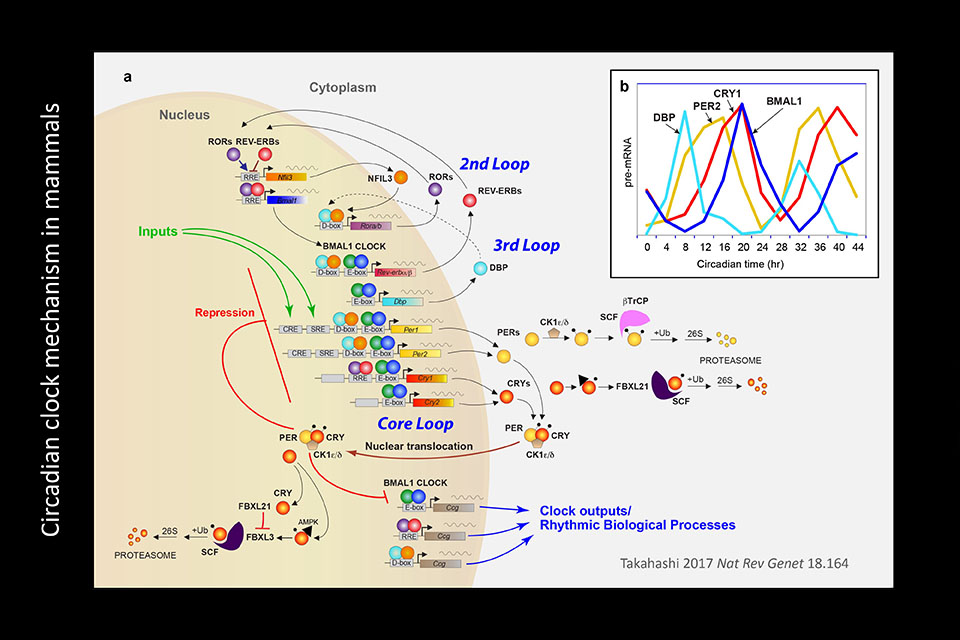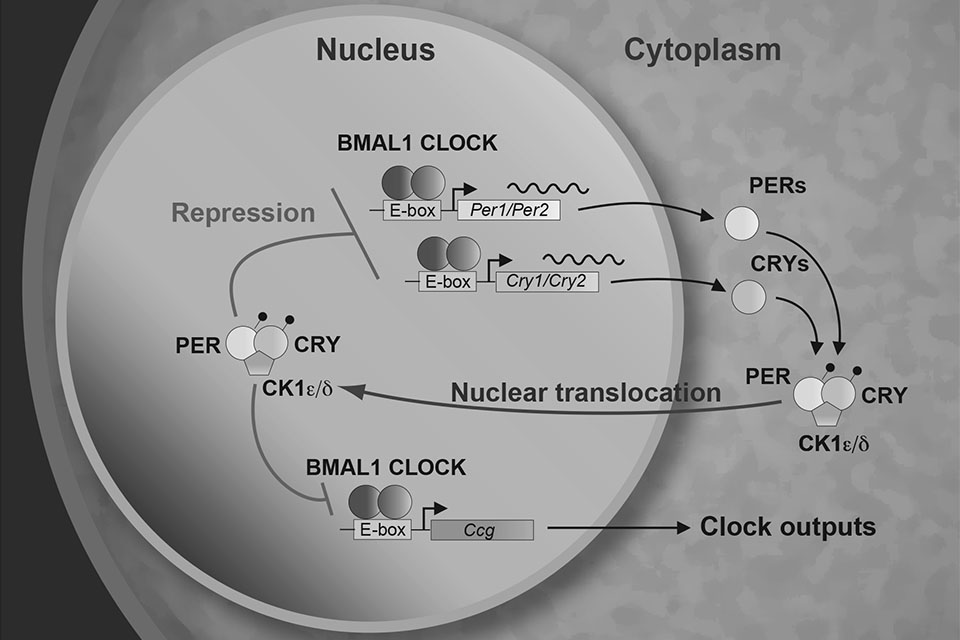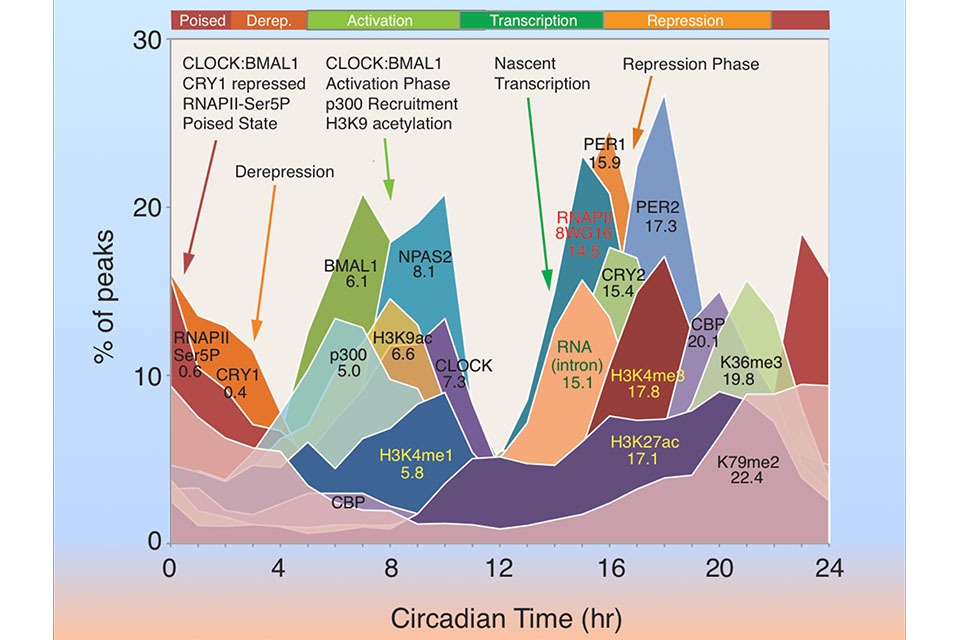Joseph S. Takahashi, PhD
Professor and Department Chair
Loyd B. Sands Distinguished Chair in Neuroscience
Department of Neuroscience
University of Texas Southwestern Medical Center
Investigator
Howard Hughes Medical Institute
(March 22, 2022)
Circadian Clocks and Their Impact on Metabolism, Aging and Longevity
It's clear that what we eat, the nutritional value and the caloric intake, impacts our general health. But can when we eat also affect our health? Our aging? Most of the cells in the human body have their own circadian responses, and while there is a central circadian clock in the brain, the rhythm of individual cells can be influenced by other factors, including nutrients. As Dr. Takahashi discussed, when we add nutrients to our bodies can lead to changes in metabolism. He and his lab are exploring the role of eating in time with circadian rhythms and the impacts this has on aging and health.
Genetic analysis of circadian behavior in mice has revealed that the molecular basis of circadian clocks involves an autoregulatory transcriptional network that oscillates with a 24-hour periodicity. In mammals, the discovery of "clock genes" led to the realization that circadian clocks are cell autonomous and are expressed in the majority of cells and tissues in the body. The master circadian pacemaker located in the hypothalamic suprachiasmatic nucleus sits at the top of a hierarchy of oscillators in the body, but peripheral oscillators can and do respond to more proximal signals such as nutrients and metabolites. Thus, the "circadian system" in mammals is a multi-oscillatory hierarchy.
The lecture will discuss recent discoveries on the neuronal network in the suprachiasmatic nucleus, as well as circadian control of transcription in the mouse liver. In addition to controlling the timing of behavior and physiology, the clock gene network interacts directly with many other pathways in the cell. These include metabolism, immune function, cardiovascular function and cell growth to name a few. With respect to metabolism, the timing of nutrient consumption is critical, and we and others have shown that restricting the timing of feeding has many health benefits. The lecture will focus on the role of circadian aligned feeding as a critical factor for aging, health span and longevity.


